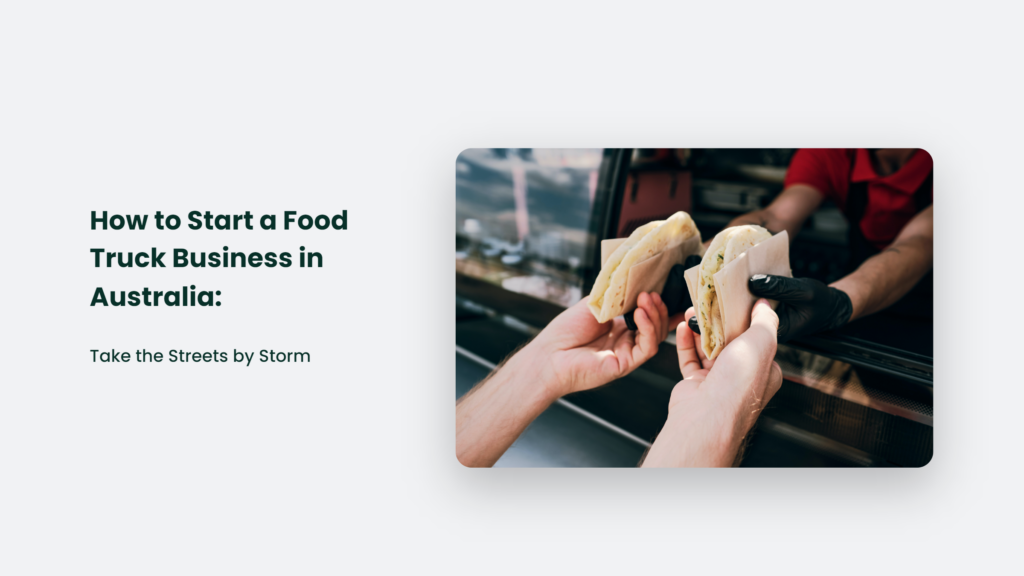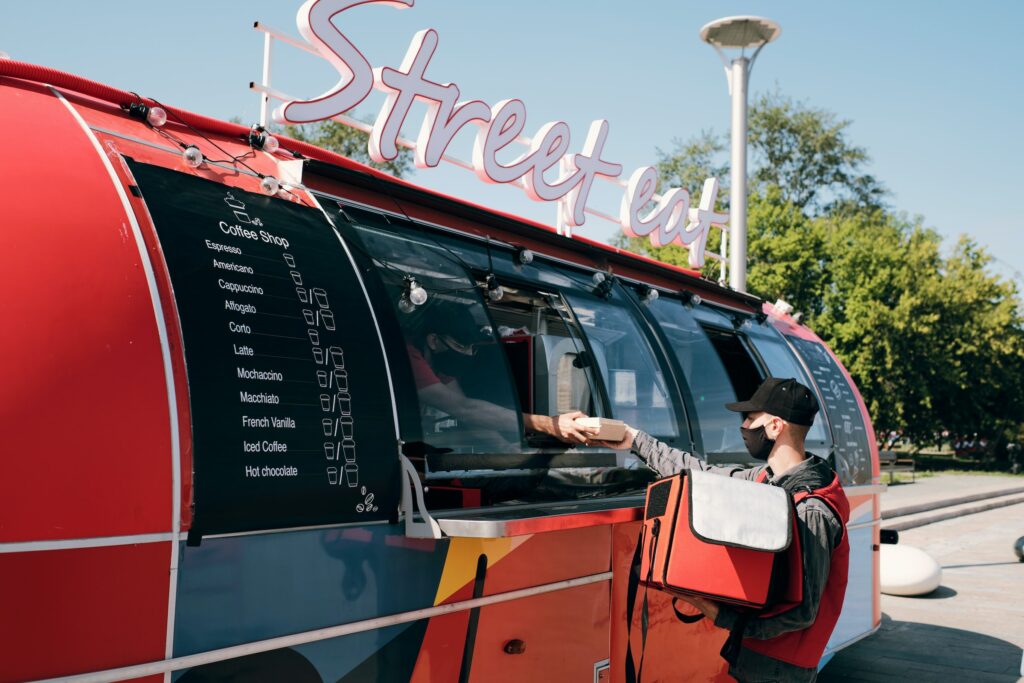Food trucks have taken Australia by storm, with over 5,000 roaming the streets and serving delicious dishes. If you’re considering joining this booming industry, buckle up and prepare for a wild ride. In this comprehensive guide, we’ll cover everything you need to know about how to start a food truck business in Australia, from creating a business plan to navigating licenses and permits. So, let’s dive in!

How to Start a Food Truck Business in Australia:
Do Your Research
Before you hit the road, you need to do some serious research. Understand your area’s food truck landscape, identify market gaps, and find inspiration from successful food truck businesses. It will help you create a unique concept that stands out from the competition.
Create a Business Plan
A solid business plan is crucial for any successful food truck venture. This plan should include the following:
- Your food truck concept and target market
- Startup costs and financing options
- Marketing and promotion strategies
- Licenses, permits, and regulations
- Equipment and supply needs
- Operational plans, including staffing and location scouting
Calculate Costs and Secure Financing
Starting a food truck business can be expensive, so it’s essential to calculate your costs and secure financing. Some common expenses include:
- The food truck itself (purchase or lease)
- Equipment and supplies
- Licenses and permits
- Insurance
- Marketing and promotion
- Staff wages
Consider various financing options, such as loans, grants, or crowdfunding, to help cover these costs.
Obtain Licenses and Permits
To operate legally, you’ll need to register your business and obtain the necessary licenses and permits from your local council. These requirements vary depending on location, so check with local authorities.
Purchase Equipment and Supplies
Once you have the necessary permits, it’s time to purchase your food truck and equipment. It may include cooking appliances, refrigeration units, storage solutions, etc. Remember to invest in high-quality, reliable equipment to ensure smooth operations.
Develop a Mouth-Watering Menu
Your menu is the heart and soul of your food truck business. Create a unique, enticing menu that caters to your target market and sets you apart. Be sure to include a mix of crowd-pleasers and innovative dishes to keep customers returning for more.
Market Your Food Truck
A strong marketing plan is essential for attracting customers and building a loyal following. Some marketing strategies to consider include:
- Social media promotion
- Local advertising
- Attending events and festivals
- Collaborating with other businesses
- Offering promotions and discounts
Hit the Road and Serve Up Success
With your food truck ready to roll, it’s time to hit the streets and serve delicious dishes. Be prepared for long hours, hard work, and plenty of challenges along the way. But with determination, passion, and some luck, you’ll be well on your way to food truck success.
Frequently Asked Questions:
How much does it cost to start a food truck business in Australia?
Startup costs can vary widely depending on factors such as the type of food truck, equipment, and location. However, you can expect to spend anywhere from $50,000 to $200,000 or more to get your food truck business up and running.
What are the most popular food truck cuisines in Australia?
Food trucks in Australia offer a wide variety of cuisines, from classic street food like burgers and hot dogs to international dishes like Korean tacos and Vietnamese burritos. The key is to find a niche that sets your food truck apart from the competition.
Conclusion: Embark on Your Food Truck Adventure in Australia
Starting a food truck business in Australia is an exciting and rewarding venture. By conducting thorough research, creating a solid business plan, securing financing, obtaining necessary licenses and permits, and developing a mouth-watering menu, you’ll be well on your way to food truck success.
Remember to market your business effectively and be prepared for the challenges of running a food truck. With passion, determination, and a bit of luck, you’ll soon be taking the streets of Australia by storm, serving up delicious dishes and making your mark in the thriving food truck industry. So, what are you waiting for? It’s time to embark on your food truck adventure and realise your culinary dreams!




